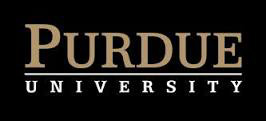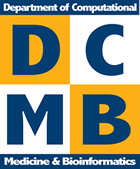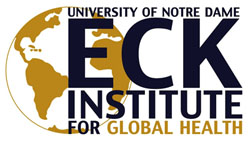Committees - ISMB 2012
Steering Committee
Scientific Committee
Proceedings Committee
Highlights Committee
Special Interest Groups Committee
Student Council Symposium Committee
Technology Track Committee
Tutorial Committee
Late Breaking Research Committee
Posters Committee
Workshop Track
Steering Committee
Scientific Organizing Committee
Late Breaking Research Track Chair: Olga Troyanskaya, Princeton University, United States
Travel Fellowships Chair: Guilherme Oliveira, FIOCRUZ – Minas, Belo Horizonte, Brazil
Bonnie Berger, Proceedings Chair, Massachusetts Institute of Technology , Cambridge, United States
Anna Tramontano, University of Rome "La Sapienza", Italy
Marie France Sagot, INRIA Grenoble - Rhône-Alpes, and University of Lyon, France
Area Committee Members Show | Hide
Robert Murphy, Carnegie Mellon University, Pittsburgh, United States
Sean O'Donohue, EMBL, Heidelberg, Germany
Area Committee Members Show | Hide
Alex Bateman, Wellcome Trust Sanger Institute, Hinxton, United Kingdom
Suzanna Lewis, Lawrence Berkeley National Labs, Berkeley, United States
Area Committee Members Show | Hide
| Alex Bateman Judy Blake Christian Blaschke Olivier Bodenreider Kevin Bretonnel Cohen Aaron Cohen Nigel Collier Dina Demner Xose Fernandez |
Rezarta Islamaj Dogan Lars Juhl Jensen Halil Kilicoglu Jung-Jae Kim Maria Liakata Kenta Nakai Francis Ouellette Jong C. Park Dietrich Rebholz-Schuhmann |
Alan Ruttenberg Michael Schroeder Hagit Shatkay Larisa Soldatova Narayanaswamy Srinivasan Padmini Srinivasan Jian Su Yoshimasa Tsuruoka Karin Verspoor Lana Yeganova |
Simon Kasif, Boston University, United States
Isaac Kohane, Harvard Medical School, Cambridge MA, United States
Area Committee Members Show | Hide
Teresa Przytycka, NCBI, National Institutes of Health, Bethesda, United States
Dannie Durand, Carnegie Mellon University, Pittsburgh, United States
Area Committee Members Show | Hide
Gene Regulation & Transcriptomics
David Gifford, Massachusetts Institute of Technology, United States
Donna Slonim, Tufts University, Medford, United States
Area Committee Members Show | Hide
Mass Spectrometry & Proteomics
Knut Reinert, Freie University Berlin, Germany
Nuno Bandiera, University of California, San Diego, United States
Area Committee Members Show | Hide
Population Genomics
Russell Schwartz, Carnegie Mellon University, Pittsburgh, United States
Eran Halperin, International Computer Science Institute, Berkeley, United States
Area Committee Members Show | Hide
Protein Interactions & Molecular Networks
Mona Singh, Princeton University, United States
Carl Kingsford, University of Maryland, College Park, United States
Area Committee Members Show | Hide
Protein Structure & Function
Lenore Cowen, Tufts University, Medford, United States
Nir Ben-Tal, Tel-Aviv University, Israel
Area Committee Members Show | Hide
Sequence Analysis
Serafim Batzoglou, Stanford, United States
Cenk Sahinalp, Simon Fraser University, Vancouver, Canada
Area Committee Members Show | Hide
Text Mining
Hagit Shatkay, University of Delaware, Newark, United States
Alfonso Valencia, Spanish National Cancer Research Centre (CNIO), Madrid Spain
Area Committee Members Show | Hide
Highlights Committee
Burkhard Rost, Committee Co-Chair, Technical University Munich, Germany
Reinhard Schneider, Committee Co-Chair, University of Luxembourg
Joel Bader, John Hopkins University, United States
Nir Ben-Tal, Tel-Aviv University, Tel-Aviv Israel
Bonnie Berger, Massachusetts Institute of Technology, Cambridge, United States
Erik Bongcam-Rudloff, Uppsala University, Uppsala Sweden
Terry Gaasterland, University of California, San Diego, United States
Paul Horton, Computational Biology Research Center, AIST, Japan
Toni Kazic, University of Missouri, Computer Science, United States
Janet Kelso, Max Planck Institute for Evolutionary Anthropology, Leipzig, Germany
Stefan Kramer, Technical University Munich, Germany
Michal Linial, The Hebrew University of Jerusalem, Jerusalem Israel
Yanay Ofran, Bar Ilan University, Ramat-Gan Israel
Jacques Reifman, US Army Medical Research and Materiel Command, United States
Donna Slonim, Tufts University, Medford, United States
Alfonso Valencia, Spanish National Cancer Research Centre (CNIO), Madrid, Spain
Ralf Zimmer, University of Munich, Germany
Special Interest Groups Committee
Hershel Safer, Committee Chair, Tel Aviv University, Israel
Mike Cherry, Stanford University, United States
Joaquin Dopazo, Centro de Investigación Príncipe Felipe (CIPF), Valencia, Spain
Jill Mesirov, Broad Institute of MIT and Harvard, Cambridge, United States
Nicky Mulder, University of Capetown, South Africa
Ivan Ovcharenko, National Institutes of Health, Bethesda, United States
Posters Committee
Yana Bromberg, Committee Chair, Rutgers, The State University of New Jersey, Newark, United States
Hannah Carter, Johns Hopkins University, Baltimore, United States
Iddo Friedberg, Miami University, Oxford, United States
Tatyana Goldberg, Technical University Munich, Germany
Ben Jelen, Rutgers University, New Brunswick, United States
Hande Kucuk, University of Miami, United States
Biao Li, Buck Institute, Novato, United States
Magali Michaut, Netherlands Cancer Institute, Amsterdam, Netherlands
Susanna Repo, EBI, Cambridge, United Kingdom
Venkata Satagopam, EMBL, Heidelberg, Germany
Andrea Schafferhans, Technical University Munich, Germany
Avner, Schlessinger, UCSF, San Francisco, United States
Stefan Senn, Rutgers University, New Brunswick, United States
Janita Thusberg, Buck Institute, Novato, United States
Tobias Wittkop, Buck Institute, Novato, United States
Chengsheng Zhu, Rutgers University, New Brunswick, United States
Student Council Symposium Committee
TECHNOLOGY TRACK COMMITTEE
Rodrigo Lopez, Committee Chair, European Bioinformatics Institute, Cambridge, United Kingdom
Christophe Blanchet, Centre National pour la Recherche Scientifique, Lyon, France
Dominic Clark,EMBL-European Bioinformatics Institute, Cambridge, United Kingdom
William Pearson, University of Virginia School of Medicine, Charlottesville, United States
Johannes Soeding, Ludwig-Maximilians-Universitaet Muenchen, Germany
Tutorials Committee
Janet Kelso, Committee Co-Chair, Max Planck Institute for Evolutionary Anthropology, Leipzig, Germany
Fran Lewitter, Committee Co-Chair, Whitehead Institute for Biomedical Research, Cambridge, United States
Late Breaking Research Committee
Olga Troyanskaya, Chair, Princeton University, United States
Florian Markowetz, Co-chair, Cancer Research UK Cambridge Research Institute, United Kingdom
Ioannis Xenarios, Co-chair, Swiss Institute of Bioinformatics, Geneva, Switzerland
Edoardo Airoldi, Harvard University, Boston, United States
Niko Beerenwinkel, ETH Zurich, Switzerland
Christina Curtis, University of Southern California, United States
Matt Hibbs, The Jackson Laboratory, Bar Harbor, United States
Carl Kingsford, University of Maryland, College Park, United States
Xiaole Liu, Harvard School of Public Health, Boston, United States
Bernard Moret, Swiss Federal Institute of Technology, Lausanne, Switzerland
Chad Myers, University of Minnesota, Minneapolis, United States
Predrag Radivojac, Indiana University, Bloomington, United States
Julio Saez-Rodriguez, EMBL-EBI, Cambridge, United Kingdom
Olga Vitek, Purdue University, West Lafayette, United States
Yinyin Yuan, Cambridge Research Institute, United Kingdom
Elena Zaslavsky, Mount Sinai School of Medicine, New York, United States
Workshops Committee
Christine Orengo, Committee Chair, University College London, United Kingdom
Janet Kelso, Max Planck Institute for Evolutionary Anthropology, Leipzig, Germany
Predrag Radivojac, Indiana University, United States
Conference Chairs
Salk Institute, La Jolla, United States
Terry Gaasterland, Conference Co-chair, University of California San Diego, United States
Richard H. Lathrop, Conference Co-chair, University of California, Irvine, United States

Brenner's notable discoveries span 60 years of research. His insights and questions have introduced entirely new ways of thinking about molecular biology. Brenner established the existence of messenger RNA and demonstrated how the order of amino acids in proteins is determined. His insights helped establish the genetic code. He conducted pioneering work with the roundworm, a model organism now widely used to study genetics. His research with Caenorhabditis elegans garnered insights into aging, nerve cell function and controlled cell death, or apoptosis.
Website: www.hhmi.org/research/fellows/brenner.html
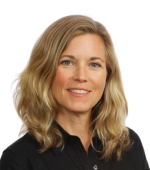
Website: genomes.ucsd.edu
 Richard H. Lathrop, Ph.D., is a Professor in the Department of Computer Science at the University of California, Irvine. He received an undergraduate degree in mathematics from Reed College, a Ph.D. in Artificial Intelligence from MIT, and also holds graduate degrees in computer science and in electrical engineering from MIT. His post-doctoral work was supervised by Patrick Winston and Temple Smith.
Richard H. Lathrop, Ph.D., is a Professor in the Department of Computer Science at the University of California, Irvine. He received an undergraduate degree in mathematics from Reed College, a Ph.D. in Artificial Intelligence from MIT, and also holds graduate degrees in computer science and in electrical engineering from MIT. His post-doctoral work was supervised by Patrick Winston and Temple Smith.
Dr. Lathrop's research interests involve applying intelligent systems and advanced computation to problems and data from molecular biology. He co-founded Arris Pharmaceutical Corp. (now Celera Therapeutics) and
Coda Genomics, Inc. (now Verdezyne). His research has appeared on the covers of Communications of the ACM, Journal of Molecular Biology, and AI Magazine. He has received a Best Paper Award from the ACM/IEEE Design Automation Conference, an Innovative Application Award from the AAAI/IAAI Conference, a Best Paper Award from the Genome Informatics Conference, and the Professor of the Year award from the UCI Celebration of Teaching. He is a co-inventor of two US patents. He was a founding officer, and is currently a member of the Board of Directors, of the International Society for Computational Biology.
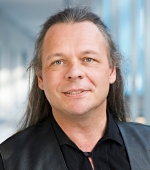
Burkhard Rost obtained his doctoral degree (Dr. rer. nat.) from the University of Heidelberg (Germany) in the field of theoretical physics. He began his research working on the thermo-dynamical properties of spin glasses and brain-like artificial neural networks. He moved briefly (1988-1990) into peace/arms control research designing simple non-intrusive sensor networks to monitor aircraft. He entered the field of molecular biology at the European Molecular Biology Laboratory (EMBL, Heidelberg, Germany, 1990-1995), spent a year at the European Bioinformatics Institute (EBI, Hinxton, Cambridgshire, England, 1995), returned to the EMBL (1996-1998), joined the company LION Biosciences for a brief interim (1998). In 1998, he joined the Department of Biochemistry & Molecular Biophysics at the College of Physicians and Surgeons of Columbia University in the city of New York. In 2009, he has been awarded one of the first Alexander von Humboldt Professorships that has brought him to the TUM in Munich, where he is now chairing the program of Computational Biology and Bioinformatics.
In 1992, Dr. Rost developed the first Internet server for structure prediction and sequence analysis (PredictProtein), and contributed a number of methods that predict aspects of protein structure. His major research contribution has been the combination of machine learning and evolutionary information. His academic research goal is to contribute toward the understanding of molecular evolution; his technical objective is to contribute toward understanding the impact of molecular changes. Particular focus lies now on predicting the effects of SNPs in the context of individualized medicine and the formation of diversity in general.
Current research focuses on the prediction of protein function from sequence and structure. It includes the prediction of subcellular localization, of protein-protein and protein-substrate interactions, the analysis of protein networks, the development of a dynamic view of the protein sequence/structure universe, the development of improved alignment algorithms, and the development of software systems that meet today’s challenges.
Website: www.rostlab.org
